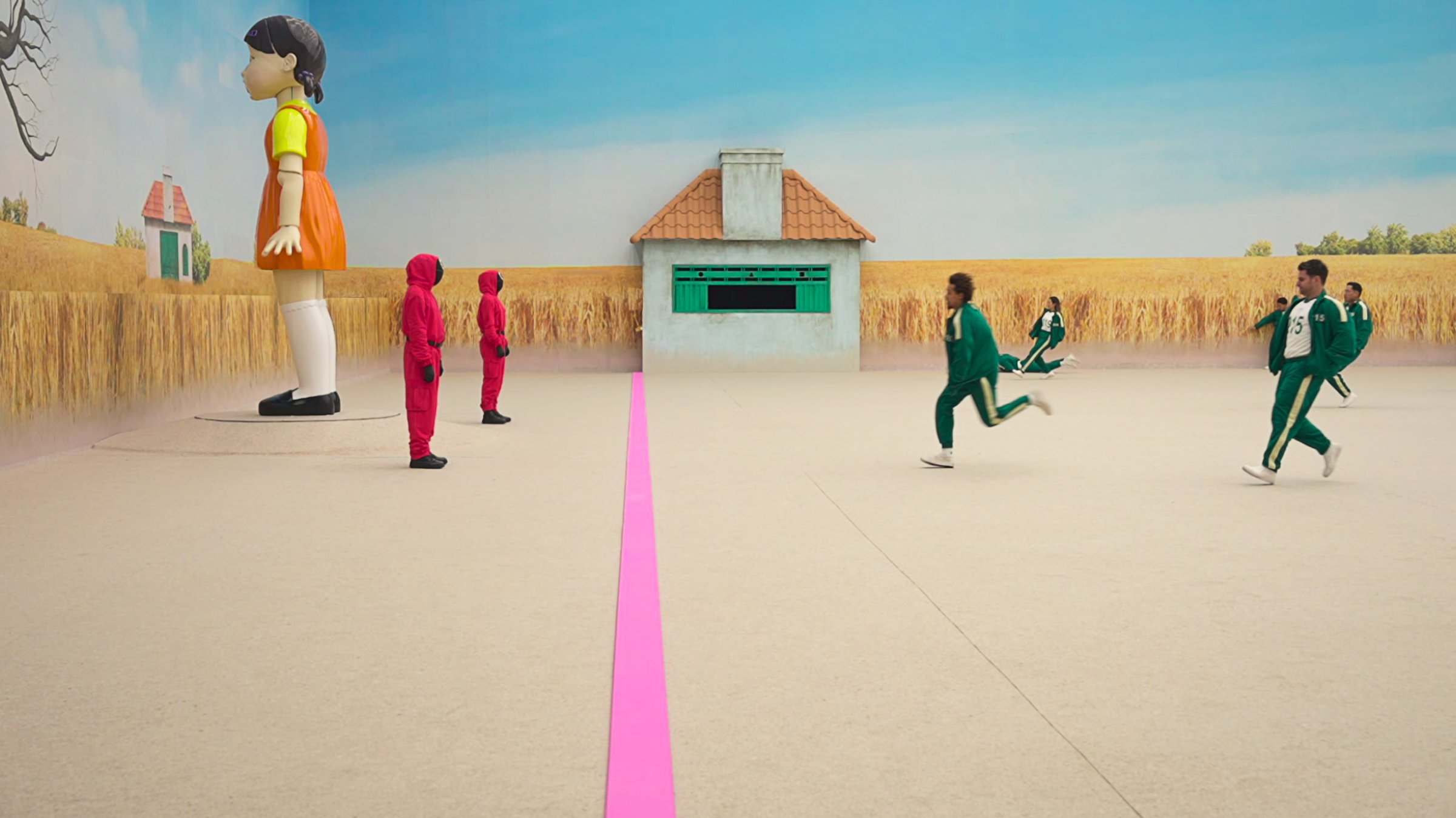
The first player viewers meet in Squid Game: The Challenge, a new reality competition based on the South Korean Netflix thriller that became an international phenomenon, is a relatable everywoman named Starla. “Who’s not in debt?” she asks, by way of explaining why she’s competing for the $4.56 million prize (456 players x $10,000). “What’s that like, to be able to pay off your house? What’s that like, to be able to pay off your car?” She never finds out. Starla is eliminated in the first round of the first game.
As this introduction suggests, The Challenge prides itself on being merciless. Like the scripted series that inspired it—minus the violent death that awaits each of the original Squid Game’s eliminated contestants, obviously—the competition pits a cast of hundreds against one another in a gauntlet of playground games. That Netflix was so quick to exploit creator Hwang Dong-hyuk’s searing critique of economic inequality for what will inevitably be another hit, and so many fans signed up to play along, is the latest evidence that satire is dead. But The Challenge also speaks to a larger trend toward cruelty within its genre.
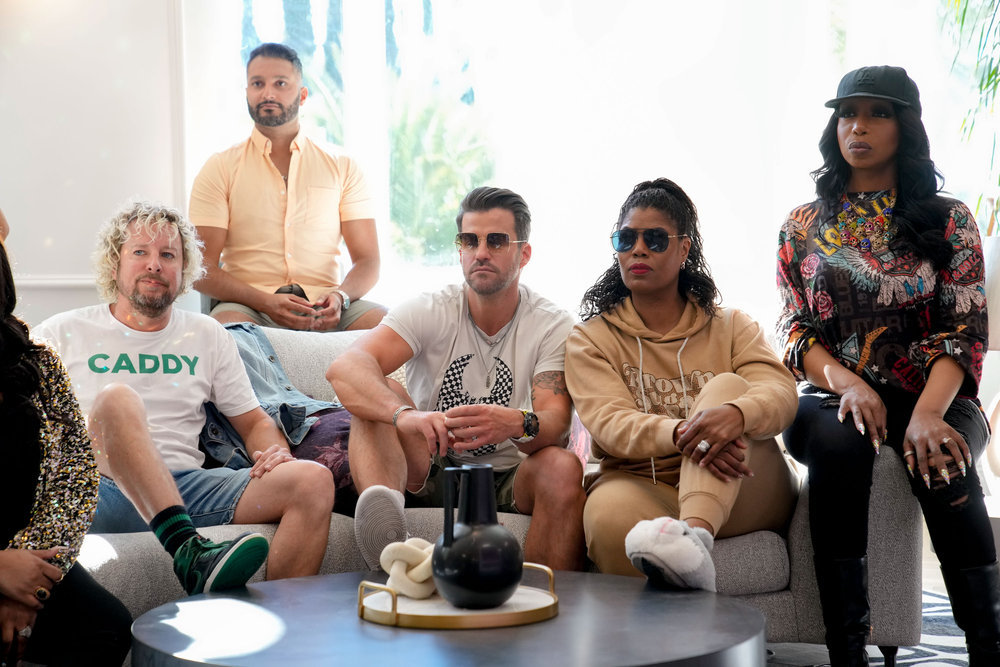
Reality competitions have not, historically, been here to make friends. Many of the biggest and most tenacious early reality franchises (Survivor, The Apprentice, Big Brother) rewarded bad behavior. Shows like The Swan and Joe Millionaire preyed on female contestants’ self-hatred and gullibility. All that seemed to be changing, however, in the late 2010s, when a wave of kinder, gentler reality shows, from The Great British Bake Off to Terrace House to Netflix’s rebooted Queer Eye, subtly pushed back against the gibing of our first reality-show President. During COVID lockdown, isolated viewers relied on the same series for virtual companionship. But for the past few years—and particularly in recent months, with the debut of such cutthroat contests as E!’s House of Villains and Netflix’s Surviving Paradise—mean reality TV has returned with a vengeance. For a genre built on narcissism in front of the camera and manipulation behind it, the heel turn was inevitable.
You can’t say the contestants on The Challenge didn’t know what they were getting into. Just like their Squid Game counterparts, they are served meager meals, sleep in bleacher-like bunks in a massive room with prison-yard vibes, and are forced with each new twist to turn on people they’ve come to care for. More than the games themselves, which can be tedious and random, it’s these interpersonal conflicts that drive the show. In one awful scene, an arrogant alpha male bullies an anxious opponent into making a choice that earns the latter the ire of his team. Cameras linger on the unfortunate man as his body turns on him and he starts to retch. The presence of some players with real connections on the outside, including a lovable mother-son duo, heightens the drama.
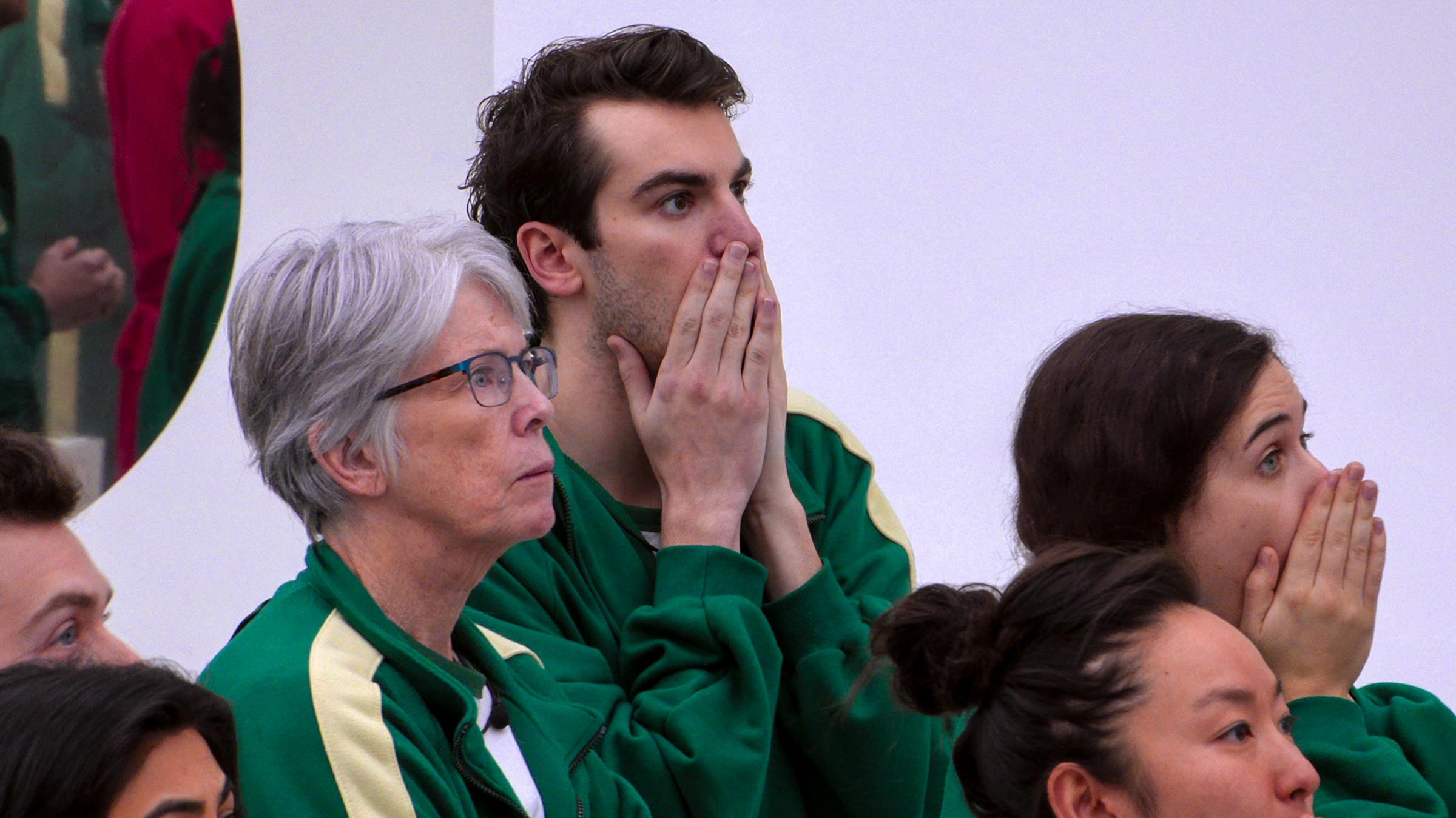
For the cast of Surviving Paradise, the game isn’t as transparent. Led to believe they’re in for a “summer of luxury,” they instead find themselves competing in a class-coded contest that pits “insiders” in a posh villa against “outsiders” who camp in the woods and subsist on rice and beans. Betrayed by the producers, the cast must then betray one another for a cash prize. By the third episode, the villa residents have gotten so locked into a competitive mindset, they squabble over who gets to sit at the head of their lavishly provisioned breakfast table.
Ethically questionable though though may be, bait-and switch setups—pioneered by nasty dating shows like Joe Millionaire (which Fox revived in 2022), Boy Meets Boy, and I Wanna Marry "Harry"—have become increasingly common, especially on Netflix. Snowflake Mountain pulled off a similar sleight of hand, promising young adults deemed “snowflakes” luxury and delivering, instead, a grueling course in wilderness survival. Too Hot to Handle recruits participants for a regular dating show, then surprises them with a high-stakes game of chastity.
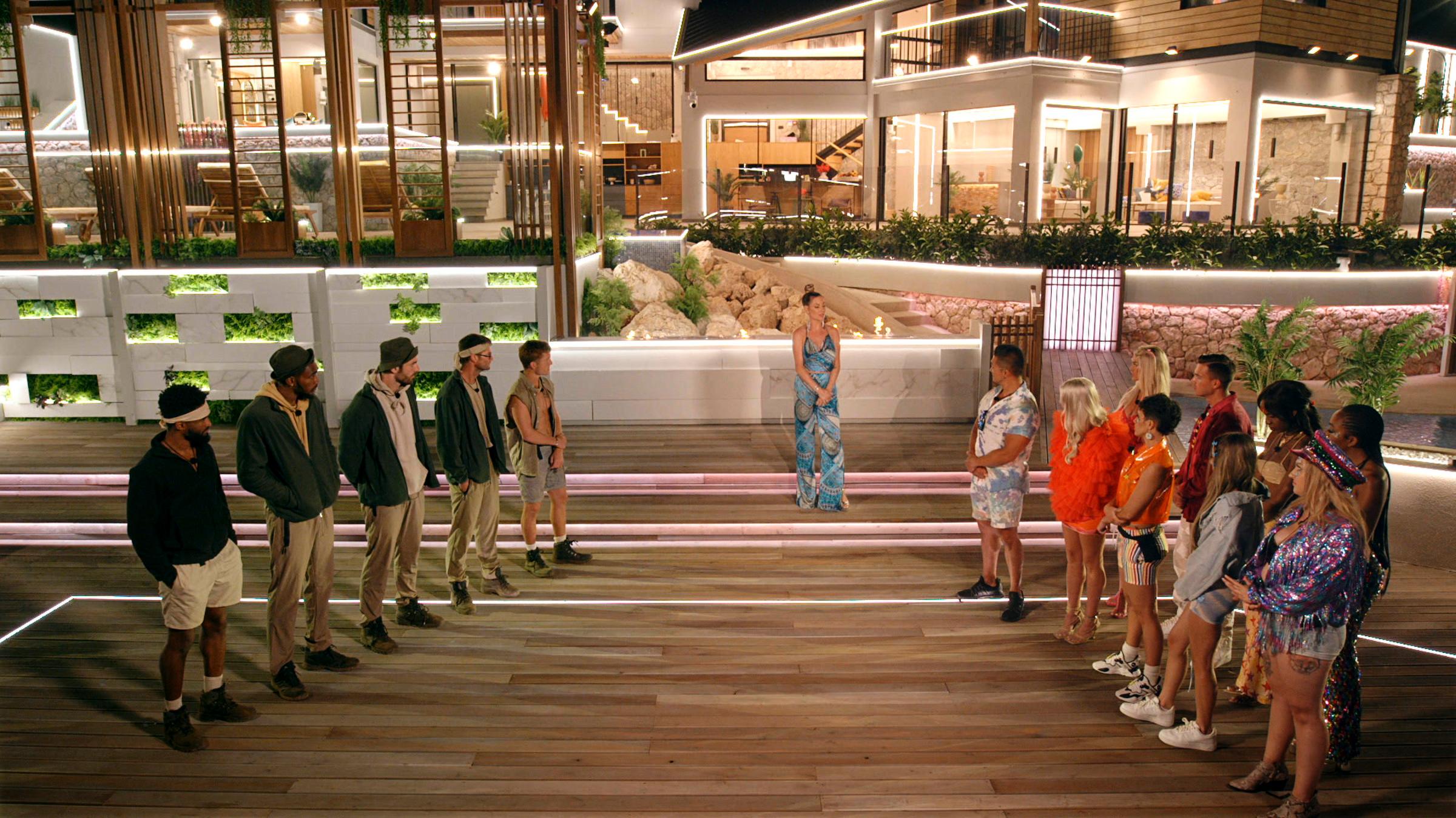
But perhaps the most obvious indication that reality competitions are back to their old, nasty ways is the premiere, this fall, of House of Villains. As in the above shows, the game is less about athleticism or talent than it is about the soft skills of social engineering: intimidation, duplicity, forging alliances that must eventually be severed. In this case, however, the players are established reality stars with villainous reputations, like notorious Survivor liar Jonny Fairplay—who was kicked off another tongue-in-cheek E! show, Kill Reality, way back in 2005 for defecating in a cast mate's bed—and mononymous Apprentice alum Omarosa, who briefly followed Mr. Trump to the White House.
The fireworks burn as bright as you might expect. "Mind games are essential to establishing your dominance," Omarosa explains. She's proven right when the least conniving cast member, an allegedly reformed Jax Taylor, of Vanderpump Rules, is the first to be eliminated. If you’re going to watch people debase themselves for cash, they might as well be the best scrappers in the business.
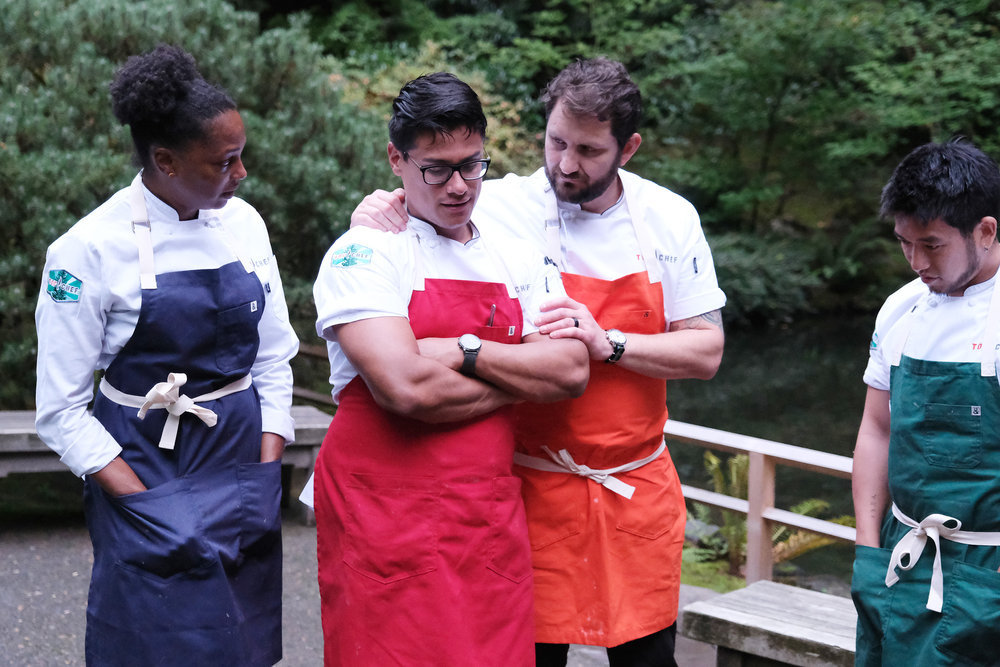
It’s all enough to make you wonder whether “nice reality TV” could possibly have been as nice as it seemed. In fact, there have been many indications over the past few years that it was not. A collegial post-pandemic season of Top Chef celebrated the resilience of the restaurant industry but crowned a winner who, after filming, was fired from a job amid allegations of sexual misconduct. In 2020, a former cast member of Terrace House, a Japanese docusoap that American critics (myself included) praised as The Real World for people with manners, died by suicide after being viciously cyberbullied by viewers. Even Bake Off got repeatedly dinged for cultural insensitivity and is now apparently scrambling to redeem itself with a season of conspicuously safe challenges.
This is the thing about reality TV: whether it takes the form of a dating-show fairy tale or an “unscripted” soap, a lovefest that makes you want to be friends with every cast member or a ruthless battle royale, each series is the result of endless massaging by producers. They manipulate casts, and selectively edit footage, in order to manipulate viewers. The carefully framed heroes are rarely as valiant as they’re made to look; the bad guys might not deserve their villain edits. This post-Trump, post-COVID correction simply reunites a deceptive format with similarly cynical content. It may not say anything good about audiences who enjoy seeing strangers screw each other over—and, in turn, get screwed over by the string-pullers behind the camera. But it’s not, on balance, any more or less authentic than a brief moment of manufactured kindness.
More Must-Reads From TIME
- The 100 Most Influential People of 2024
- Coco Gauff Is Playing for Herself Now
- Scenes From Pro-Palestinian Encampments Across U.S. Universities
- 6 Compliments That Land Every Time
- If You're Dating Right Now , You're Brave: Column
- The AI That Could Heal a Divided Internet
- Fallout Is a Brilliant Model for the Future of Video Game Adaptations
- Want Weekly Recs on What to Watch, Read, and More? Sign Up for Worth Your Time
Contact us at letters@time.com